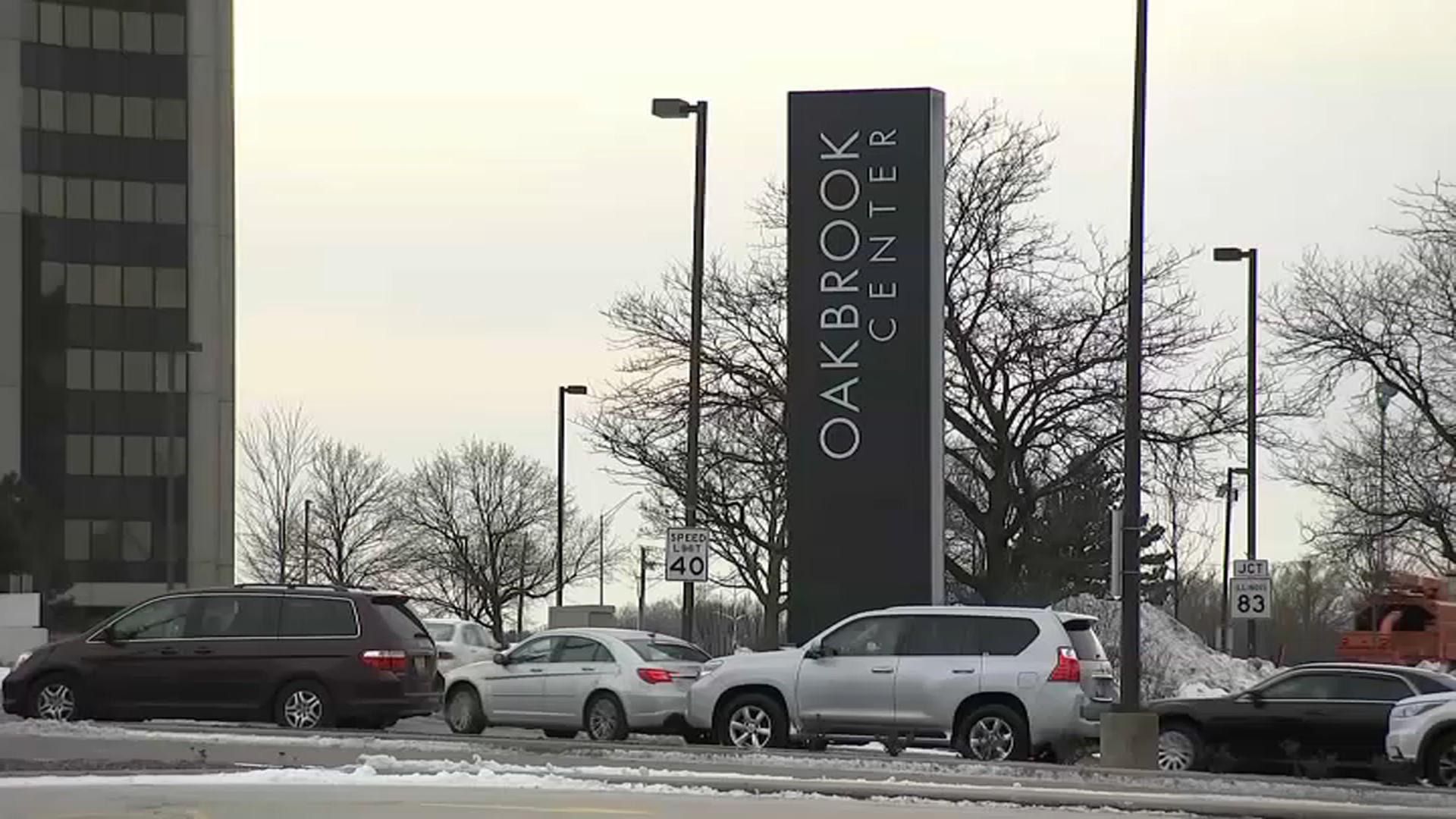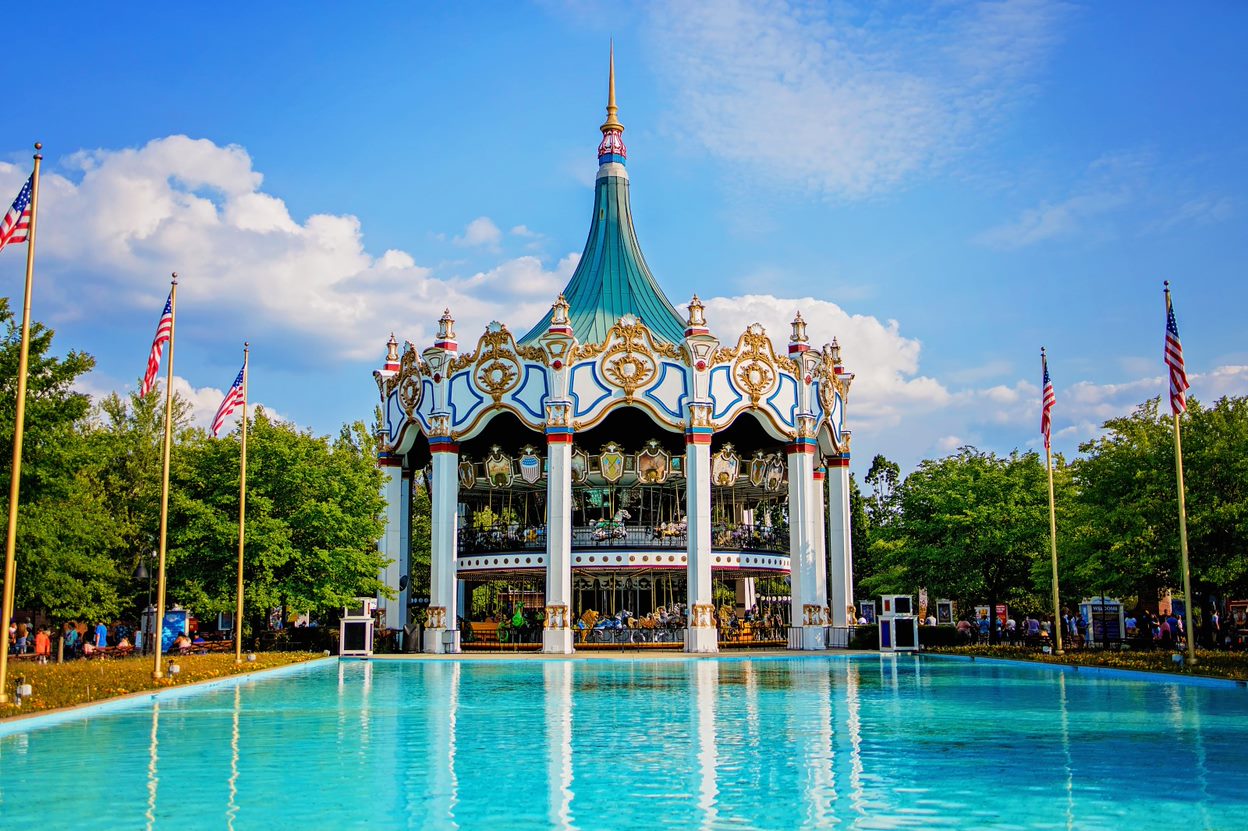Entrepreneurs need every little bump they can get. Be it attention from the media, a sudden sponsorship, or, say, being allowed to sell their wares at the third largest sporting event in the world. This year, the third one has been the case for Daniel Wohlfeil, who, before following his personal passions to form his own design firm, was with McDonald's corporate office for 15 years. At McDonald's, Wohlfeil secured the company five patents for its drive-thru technologies. But, eventually, Wohlfeil began to feel that he went as far as he could with design at McDonald's, and he certainly made his mark: Among his other bragging rights, he also was the head architect/designer on the Rock 'N' Roll McDonald's in downtown Chicago.
After he went into what he calls "early retirement," Wohlfeil decided to combine his two passions – design and golf – into a product he painstakingly researched called the Players' Guide. It's warmly illustrated, filled with fun facts and trivia and "simple thoughts to allow the body mechanics to take over [and] provide positive course management [to] invite 'feel' back into this beloved game." Well, one thing led to another, and the book is going to be sold exclusively at the Ryder Cup in Medinah, Illinois. (And the only reason NBC was made aware of all this is because Wohlfeil's wife, Victoria, shot us an email.) So, to connect all those dots and find out more about Wohlfeil's plans for the book being sold later this month at Medinah Country Club, I met up with Wohlfeil.
First off, so good to meet you on such short notice.
Daniel Wohlfeil: My wife, without me knowing it, emailed you and gave the sob story of the businessman who was on his last nickel.
It wasn't a sob story!
Daniel Wohlfeil: Well, it's somewhat true. So we were talking about marketing opportunities of this product and I started back in 2008. I started my own company. Basically I retired. I called it an early retirement from the McDonald's corporation after 15 years. I was director of worldwide development. At that point I felt as though I did mostly what I could at McDonald's from a design standpoint and I have a passion for golf, so I thought, "Let's mix the two together."
I happen to be a member of a country club. I live in Elmhurst. Married, live in Elmhurst. I'm a member of River Forest Country Club. I joined there and one day I was approached by the board and asked if I would be interested in becoming a board member. They were trying to do renovation. And that was in 2004. I thought, "Wow, how exciting. How important am I, getting this honor to be a board member." So, lo and behold I realize that there's no honor in that at all. It's just a lot of work that you don't have to pay for.
Local
So, I served six years. Two terms on the board. And during that, we did a major renovation for a little over $5 million. And that that time I still worked at McDonald's, did it all for free, did it for fun. I thought it was gonna be fun. Hired architects, hired design firms. So, I'm a member, and it's fun and I worked with architects and designers and I realized nobody was a specialist in country clubs. They didn't understand the country-club community, what it's like to deal with members, to deal with a board that changes every two years, committees and basically 250 type "A" personalities who are all generally successful businesspeople and have their own opinions. So, I did our club, I fired the architect, I fired the interior designer and decided to do it on my own for fun. It turned out wonderful. It actually turned out amazing. It was a blast.
So, I didn't really think about it at the time. I was still working at McDonald's. Thought about it a little bit more and said, "Wow, there's a sector for that. There's a market for somebody who specializes." And there are some architectural firms out there that say they specialize and I'm not saying they don't, but they're not the complete package and they really don't understand the politics of what it takes in a country club. And I do, by living it and breathing it and being a member for 10 years.
So, I did my research. At that time there were 116 private clubs just in the Chicagoland area, all built in about the 1920's. Knowing that they're all gonna need renovations. So, this was 2008. I told McDonald's I was going into early retirement. I'm not going to the competition; I want to follow a dream.
And then the economy crashed. Kinda tough. I was lucky enough to pick up two major club projects to start off my firm with.
When did the idea for the Players' Guide come about?
Daniel Wohlfeil: I love technology. I embrace technology. But I believe there's a fine line or almost like a fusion where you need to take two opposites and put them together. If you can do that, you've got a winner. What's happened with golf is that technology has taken over. We have better clubs, the ball goes farther and laser devices now that can shoot exact yardages to anywhere. So, the old-fashioned yardage book with just a bunch of numbers is obsolete. Nobody would use that.
But what was missing was the balance of that: the heritage and tradition and the feel and emotion of the game. So I came up with the Players' Guide. It has no yardage on it at all. All it talks about is the strategy and how you play the hole. Everything in there is hand-drawn sketches. So, they're basically individual pieces of artwork. I worked with the Director of Golf Mike Scully to put this specific book together. I showed him a prototype. I realized when when I took guests out, I would always say, "On the first hole, you just want to hit the ball on the left-hand side 180 yards." That's all I would say. The other part is all positive thought. Never say there's water, there's this, there's that because your mind always remembers the last thing, whether it's positive or negative. So, everything in the book is positive. There's nothing negative in the book. Just positive thoughts.
So I showed him my book and I said, "I have an idea. I think this be a great keepsake for people who come to the event, for members to use as well as members for their guests." He looked at it and he loved it. What I had to do was get approval from PGA of America because they don't just allow anybody in.
What was involved with that?
Daniel Wohlfeil: Mike Scully called the PGA up on my behalf.
With you knowing?
Daniel Wohlfeil: With me knowing. We talked about it. And he said, "I have this really unique product that I've never seen before that I think you would love and the consumer would love who goes to the event." They looked at it as a favor to him. Normally there's some type of licensing fee and everything else. I did not have to pay that. They also didn't promise me anything. They just said, "You can go ahead and show up at the merchandise tent on consignment. You'll sell the books." We split, obviously, the proceeds and I can only sell them right now at Medinah Country Club and during the event.
What are you hopes for the book in terms of what you'd like to parlay it into after the event?
Daniel Wohlfeil: If you go to any destination golf course, like a Pebble Beach, golfers pay, say, $500 a round. They want a keepsake. This should be part of their round of golf, and they can take that with them.
All the corporate sponsorships [at Ryder]. Right now there's 74 corporate chalets at the Ryder Cup that are very expensive. They hold between 50 up to 150 people. I would think a corporation who would like to entertain would want to buy these books and give them to their guests, their clients.
That would be my hope. My hope would be to parlay it into the positive side of golf. That would be a home run.
I'm surprised you didn't use a golf metaphor.
Daniel Wohlfeil: Well, it would be a home run.

David Wolinsky is a freelance writer and a lifelong Chicagoan. In addition to currently serving as an interviewer-writer for Adult Swim, he's also a comedy-writing instructor for Second City. He was the Chicago city editor for The Onion A.V. Club where he provided in-depth daily coverage of this city's bustling arts/entertainment scene for half a decade. When not playing video games for work he's thinking of dashing out to Chicago Diner, Pizano's, or Yummy Yummy. His first career aspirations were to be a game-show host.



